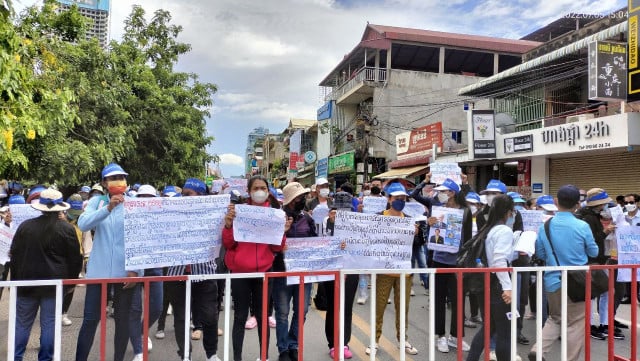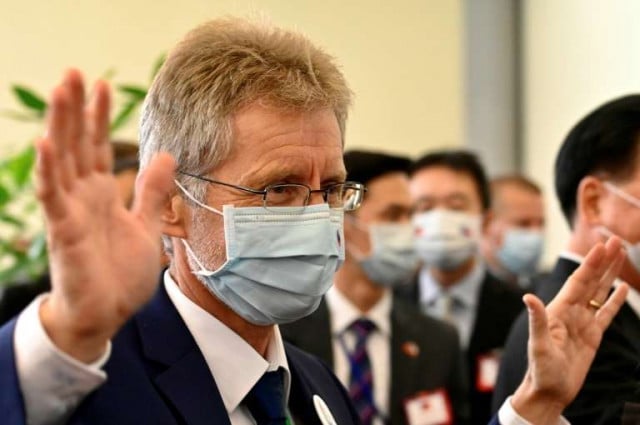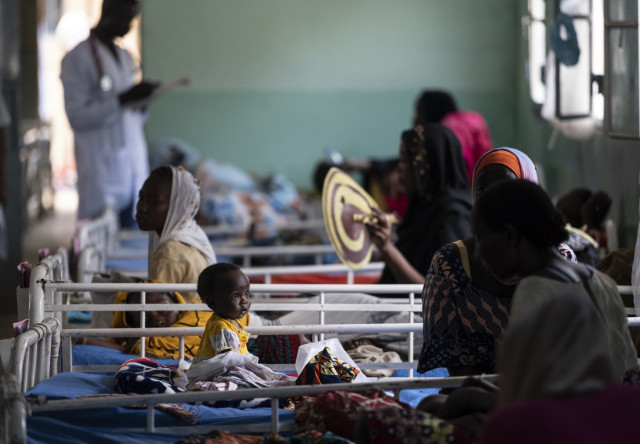Human Rights Divide Civil Society and Government

- By Meng Seavmey
- December 30, 2022 11:59 AM
PHNOM PENH – No significant improvement in human rights took place in Cambodia in 2022, LICADHO deputy director Am Sam Ath says.
There was still a lot of criticism over rights of citizens, rights of civil society groups, rights of media, and rights in politics.
However, a government spokesman denied this was the case.
Sam Ath said, that even international organizations had been worried and had called for opening up political space as well as improving democracy.
At the ASEAN summits in November, partners also encouraged Cambodia to open more human rights space.
Sam Ath said that because there had not been any significant improvement, he was looking forward to human rights being practiced in the 2023 election, especially the political space.
Freedom of expression remained low, he said. Civil society groups’ freedom to gather or to express views was restricted. Union labor leaders and human rights activists were still watched and arrested.
The independent media faced limits in doing their job, with detentions, arrests or lawsuits against them.
Regarding the fundamental rights and political rights, Sam Ath was worried because lawsuits against senior opposition party officials had increased since 2017. Activists were arrested continually.
“These are still the problems in the space of human rights in Cambodia,” he said.
“If there is not significant progress on that right now, then I don’t think there will be next year either. Respect for human rights will remain as low.”
However, government spokesperson Phay Siphan said human rights in Cambodia had improved and was better than last year.
“Human right was the origin of Cambodia’s democracy because we want to get away from the fighting in civil wars — the culture which is the obstacle in respecting human rights. In the constitution, human rights are protected by the law,” he said.
The government had been actively working on it and educating citizens step-by-step about their obligations, as well as providing services of the authority and the government officials when needed to solve problems related to human rights.
“If we evaluate based on the efforts thus far, we have taken a big step in human rights.
“We have been improving human rights, such as labour rights, the rights to live, the rights to get an education, as well as the rights in the health sector,” the spokesperson said.
However, some people had yet to use the term correctly to reflect the real situation or the livelihood of the country.
He said the government had been serving people for them to live well throughout the year and would continue to do so.
Human rights practice started from the education sector and the understanding of the lives of families in each household.
“The development of human rights will go on and on. Even in the countries that we think are developed, like the US, there are still obstacles hindering the improvement of human rights, including racism or color discrimination,” he said.
To respect human rights is to obey the law on the ground that human rights are protected by the law, which means everyone is obliged to respond to the law by obeying it.
“If the relevant parties in a conflict do not consider the law and demand anything as they please to satisfy themselves from the other party, then that is not obeying the law,” Siphan said.
If “respecting human rights” is not aligned with “obeying the law”, then that is the opposite of the Constitution.















